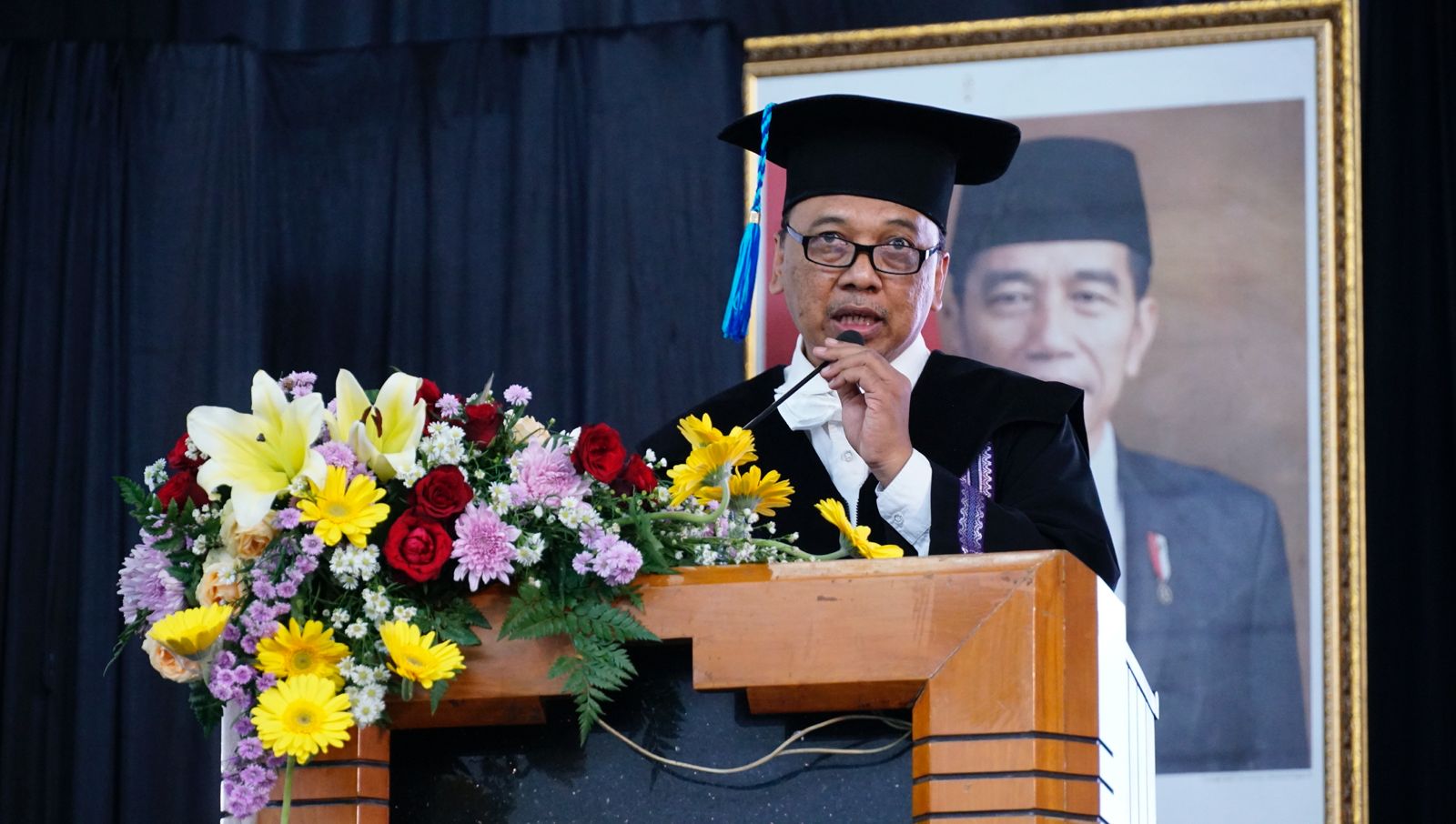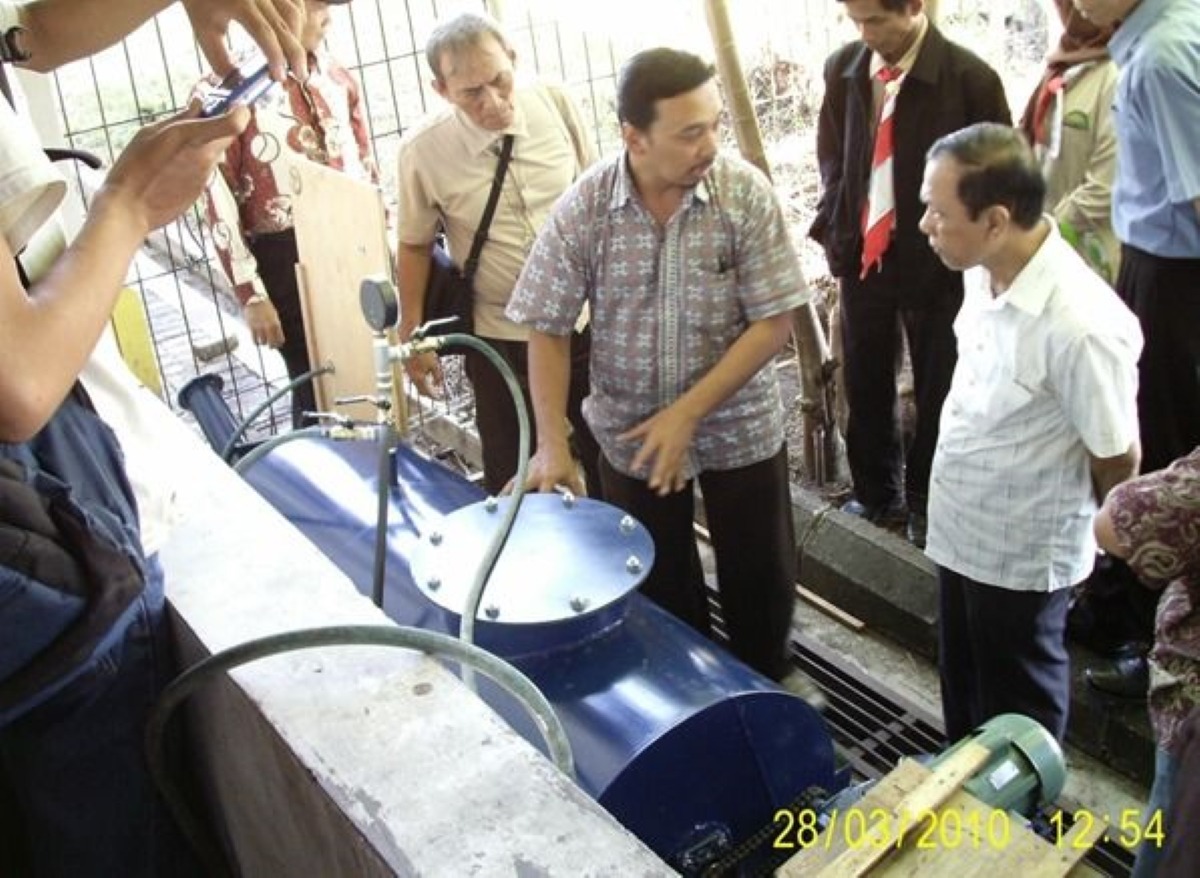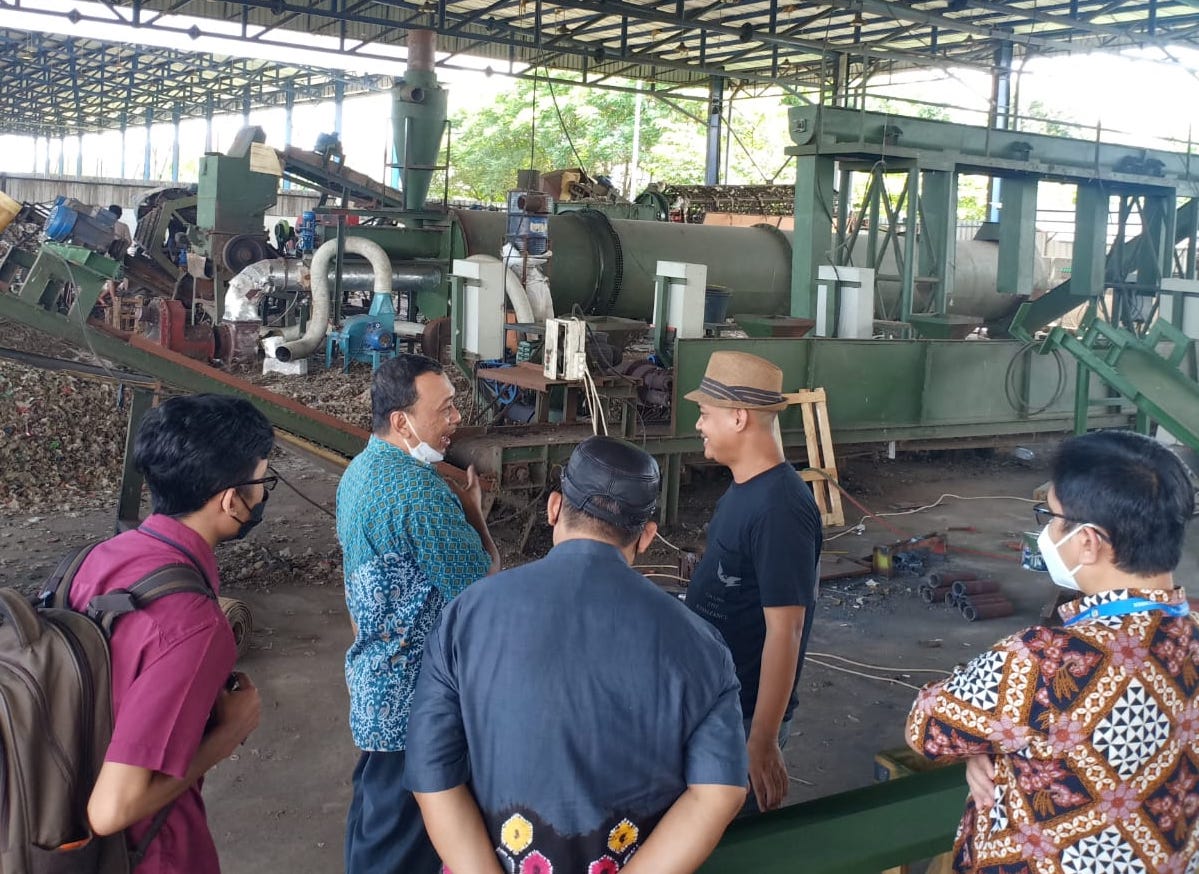ITS Professor Realizes Sustainable Transportation Through Bioenergy Engineering

Prof Dr Bambang Sudarmanta ST MT delivered his inaugural lecture on bioenergy engineering innovations upon being appointed as the 194th Professor at ITS.
ITS Campus, ITS News –The substantial contribution of the transportation sector to the generation of carbon dioxide (CO2) emissions has prompted the 194th Professor of the Institut Teknologi Sepuluh Nopember (ITS), Prof. Dr. Bambang Sudarmanta ST MT, to spearhead the development of bioenergy engineering technology. The objective outlined in his academic discourse is to bolster sustainable transportation systems.
The ITS Mechanical Engineering Department lecturer explained that the transportation sector is the second-largest contributor to CO2 emissions after power plants. This phenomenon occurs due to the substantial human dependence on fossil fuels. “However, fossil fuels are becoming increasingly expensive and difficult to obtain over time,” he expressed.
Prof. Bambang pointed out that the solution to this issue lies in conservation and renewable energy. To address this, Bambang is developing a strategic field that incorporates both solutions, namely bioenergy. Bioenergy involves harnessing energy from existing biological sources. “The utilization of bioenergy can provide a sigh of relief for the world,” he stated.
In support of this concept, the professor, who has accumulated 28 journal publications, has proposed six technological innovations in the field of bioenergy. One of them is the novelty of biogas technology. Bambang elaborated that biogas technology involves the conversion of biomass through anaerobic fermentation processes.

Prof Dr Bambang Sudarmanta ST MT (center in batik) explains the creation of a biogas device that can maximize the production of high-protein biogas, safe for vehicles.
Using raw materials such as excrement and domestic waste, Bambang has successfully produced high-calorific methane gas that is safe for motor vehicles. The creation of methane gas is facilitated by the incorporation of heating and agitation processes in the biogas reactor, along with purification processes using a filtration system. “With this method, gas production can be optimized,” he emphasized.
Another innovation lies in Refuse Derived Fuel (RDF) technology, which is a fuel made from waste materials that can be used in motor vehicles. Bambang has designed a machine for producing RDF called the Mobile Waste Screening and Shredding Machine.
The professor, who is focused on the development of bioenergy, conveyed that this machine can be realized by completing two stages. The first stage involves the formulation of basic machine design and schematic drawings. In this process, the design of the machine is conceptualized to be ergonomic and functional according to its purpose.

Prof Dr Bambang Sudarmanta ST MT (second from the left) explains the development of the Mobile Waste Screening and Shredding Machine for producing RDF, a motor fuel derived from waste.
The second stage involves the creation of a prototype. The mentioned prototype is a device capable of shredding domestic waste. From this shredding process, further steps are taken to create RDF. “This machine is capable of supporting Indonesia’s commitment to green energy at the recent G20 meeting,” he stated.
In addition to the aforementioned innovations, Bambang has also contributed innovations in gasification technology, biodiesel, bioethanol, and diesel dual fuel (DDF). Together, continued Bambang, these six technological innovations support Indonesia’s dream of achieving sustainable transportation. This is marked by various supporting products created from the technological innovations he has developed. One example is the production machine for bioethanol, RDF, and electric vehicle technology.
Lastly, as the Manager of the Science Techno Park (STP) Automotive Cluster at ITS, he hopes that with these technological innovations, global CO2 emissions can be reduced, thereby effectively addressing global warming. In addition, Bambang also hopes that his ideas can assist all layers of society around the world. (ITS Public Relations)
Reporter: Ahmad Farhan Alghifari
Translator: Marcellius Fernando R
Related News
-
ITS Sends Off 12 Free Mudik Vehicles Ahead of Eid Al-Fitr
The dispatch of 11 bus fleets carrying ITS students for the Free Mudik ITS 2024 ITS Campus, ITS News
January 21, 2024 22:01 -
ITS Lecturer Wins 2024 Female Science Talents Intensive Tracks from Germany
Sri Fatmawati SSi MSc PhD, a lecturer at the Department of Chemistry, ITS, has emerged as the winner of
January 21, 2024 22:01 -
ITS Shares Tips & Tricks on SNBT 2024 Socialization
(from left) Executive Secretary of SNPMB 2024, Bekti Cahyo Hidayanto SSi MKom, Head of the Admissions Subdirectorate at ITS,
January 21, 2024 22:01 -
Supporting Defense in Indonesia, ITS Professor Creates Anti-Radar Material
Professor Dr. Mashuri SSi MSi, while delivering his academic oration on anti-radar materials during the ITS Professorial Inauguration. ITS
January 21, 2024 22:01
